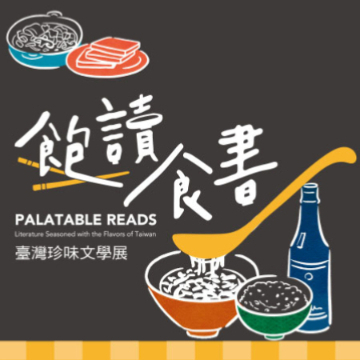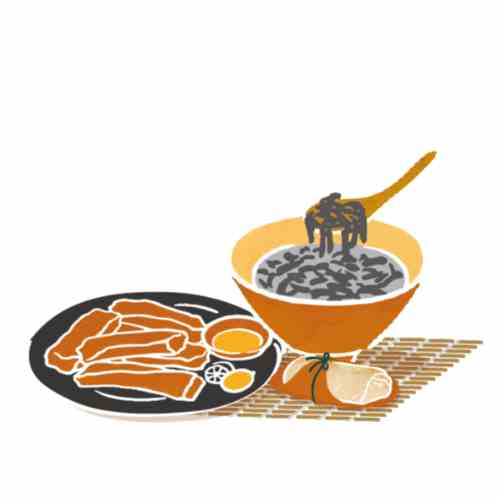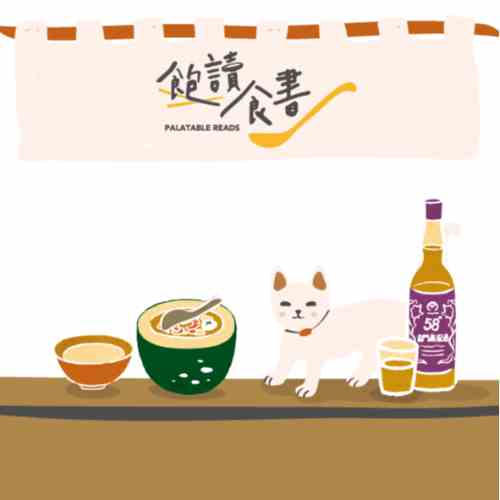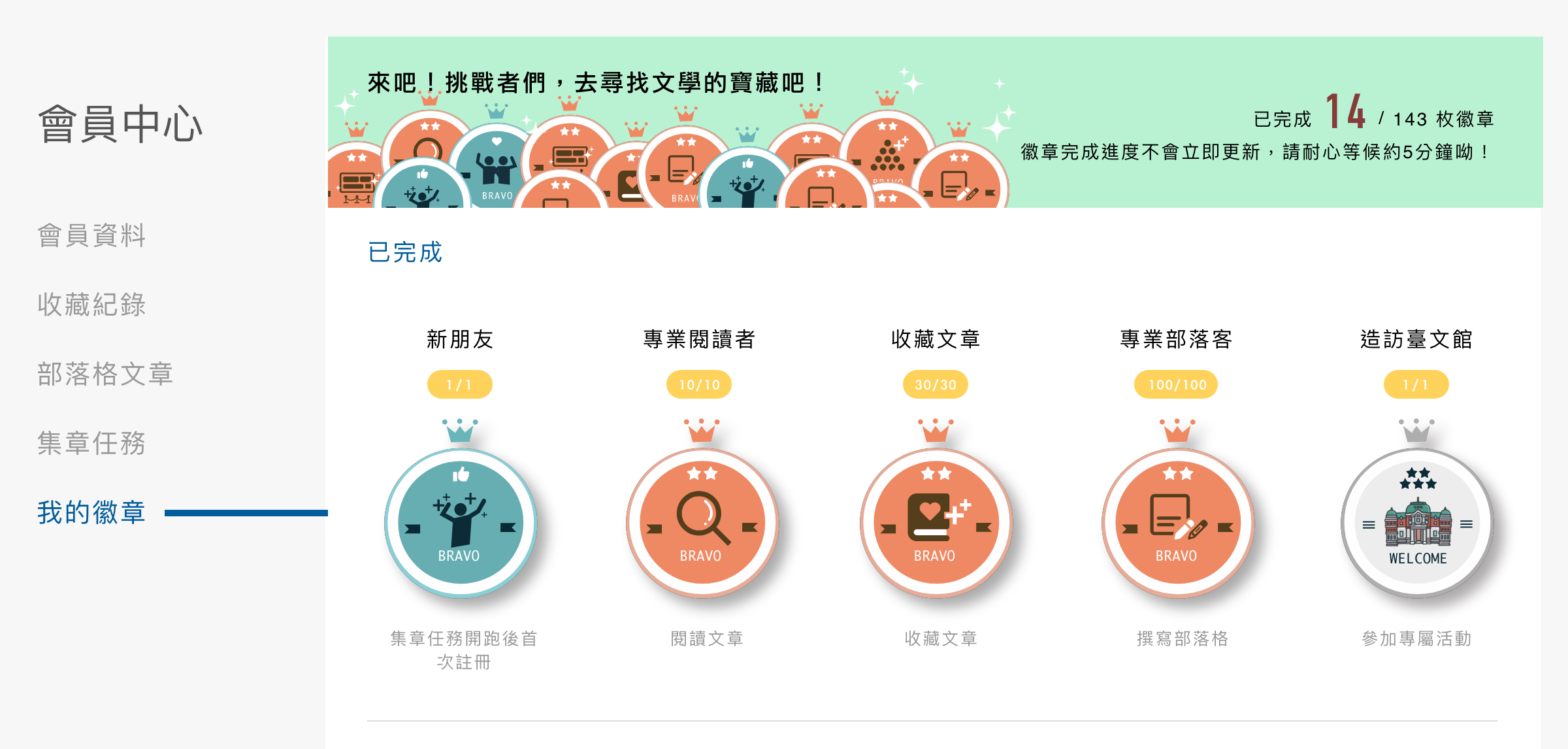The festivals of the calendar take physical form in the delicious foods associated with them: Turnip cake welcomes the new year with its tenderness and golden flaky exterior; mooncake has a fragrant crust with a pleasantly chewy filling, helping you grow round as the mid-autumn moon; ginger duck warms the stomach and the heart, since the hungluh wine activates blood flow and one's vital breath. As they slip into your stomach-- Feel the spirit of the season in your body and enjoy auspicious celebration through food.
Turnip Cake 蘿 蔔 糕.jpg)
The steamed turnip cake is as round as the noon sun, and everyone craves a taste despite being full from the feast. The sweet fragrance pairs well with toso wine, each piece is cooked by the lady of the house.
◖ Fu Xi-qi, "Rice Cakes II" Quan Tai Shi Volume 21, 1911
Appreciation:
Fu Xi-qi (1872-1946) of Taichung. He wrote this poem after the Lantern Festival of 1911. The rice cakes steamed during the Lunar New Year had people drooling over their fragrant aroma. Radish cakes were seared in flames, making them even more delicious. They paired perfectly with toso wine.
_______________________________
About the Author:
Fu Xi-qi (1885-1946) was from Tanzi in Taichung. He was an editor of Taiwan News. In 1906 he joined the Li Poetry Society and later served many terms as president. In an era where new literature was booming, he insisted on the recitation and singing of traditional poetry. He is the author of Ho-Ting Poems.
Mooncake 月 餅.jpg)
Fengyuan mooncakes are famously flaky, and Hsinchu cakes are sweet with a strong flavor. Cantonese and Fujian styles differ too greatly to be compared but meat filling loses to lotus seed mash.
◖ Lin Zhi-yi, "Four Mid-autumn Zhuzi Poems: No. 3" in Quan Tai Shi Volume 41 "Mid-autumn Zhuzi Poems: No. 3", Period of Japanese rule
Appreciation: With the arrival of mid-autumn, it is time to eat mooncakes. Fengyuan mooncakes are soft and flaky like snowflakes, while Hsinchu mooncakes are especially sweet and fragrant. Since the processes of making Cantonese and Fujian mooncakes are too different, they cannot be compared. However, lotus seed mash is still the superior filling over meat.
_______________________________
About the Author:
Lin Zhi-yi, who was also given the courtesy name Wen-yu, his childhood name Yi-jin, the pseudonym Han-bo and alias Suiyuan Weisou, was from Hsinchu. He was of small stature, and was only a young child when he started school, hence was given the name "Child Scholar". During the handover of Taiwan to Japan, he helped Japanese troops suppress a revolt. He excelled at gardening and was a well-known calligrapher. His works are compiled in Lin Zhi-yi's Manucripts and Buli Pavilion Short Draft. (Guo Qi-chuan)
Duck Tonic 吃 鴨 進 補.jpg)
A frail body fears the winds of autumn, October quilted clothes are not yet ready. Some Muscovy duck stewed with tea oil and ginger wine will keep me warm through winter.
◖ Lin Qi-xi ,"Xinmao Autumn and Winter Miscellaneous Poems II" in Quan Tai Shi Volume 47, 1951
Appreciation:
Lin Qi-xi (1887-1962) Lin wrote this in 1951. With the arrival of autumn, a frail body fears wind and frost. Winter clothes have not yet been made. So, stew a mature duck with tea oil and ginger wine to stay warm all winter.
_______________________________
About the Author:
Lin Qi-xi, also known by the courtesy name Di-zhou, was from Chiayi County. He is the son of the scholar Lin Shen-xiu, a significant figure in the Yufeng Society. In his later years, he returned home, living out the rest of his days to recite poetry. His study room was known as "Leshan Study Room."
Hungluh Chiew (Red Yeast Rice Wine) 紅 露 酒.jpg)
The color in the glass is more beautiful than peach blossoms, there are only a few brewers who can accomplish a feat so exquisite. The flavor is so splendid that you can drink to your heart's content and fly to new heights.
◖ Xu Zhu-zhu, "Wine" Quan Tai Shi Volume 51, 1933
Appreciation:
Xu Zhu-zhu of New Taipei City (1882-1945) Xu wrote this poem in 1933. The color of hungluh (red dew) wine is even brighter than that of a peach blossom. The flavor is wonderful; but if you drink too fast, you're sure to get drunk quickly. This poem was written to comply with the wine monopoly policy that was in place at the time. However, what the poet said, in a more euphemistic way, is that if you drink too much, you won't reach the "realm of gods" but might even end up dead.
_______________________________
About the Author:
Xu Zhu-zhu (1882-1945), also known by the courtesy name Xi-zhen, was from Sandiaobao in Jilongting, part of Tamsui County (which is now Shuangxi District in New Taipei City.) In the 13th year of the Taisho era (1924), he founded the Shuangxi Poetry Society with Zhou Shi-heng, Lian Wen-tao, Zhuang Mu-yan and others. In the third year of the Showa period (1928), the name was changed to the Diaoshan Poetry Society. Xu served two terms as president and was a key figure in the organization. His poems were included in the Taiwan Daily News and Shi-Bao.









